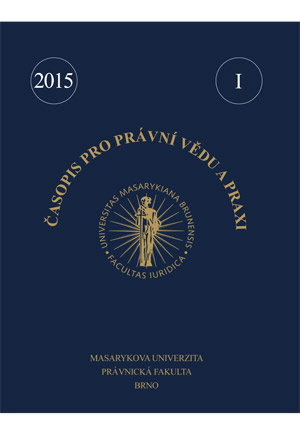Následné chování smluvních stran a jeho (ne)samozřejmé využití při jednoduchém výkladu smlouvy
Subsequent Conduct as (Non)obvious Use in Simple Contract Interpretation
Author(s): Josef KotásekSubject(s): Commercial Law
Published by: Masarykova univerzita nakladatelství
Keywords: Simple Contract Interpretation; Subsequent Conduct; Czech Civil Code;
Summary/Abstract: In recent times, contract interpretation has become one of the most contentious areas of the law of contract. The law relating to the interpretation of contracts varies around the world. Some civil law countries take a subjective approach which defers to the actual common intention of the parties. Some countries prefer an objective approach to the interpretation of contracts. The interpretation of contracts in the Czech Civil Code lies in the combination of the subjective and (subordinate) objective methods of interpretation. In determining the intent of a party, consideration is to be given to all relevant circumstances of the case including the negotiations, any practices which the parties have established between themselves and any subsequent conduct of the parties. The author argues that there are no convincing reasons of principle, policy or convenience for refusing to receive evidence of post-contractual negotiations and subsequent conduct, even though later recollections of what was meant may be unreliable. The parties‘ behavior may naturally better reveal their intentions in a transparent and objective way. Author deals with the extent to which post-contractual negotiations and another subsequent conducts are admissible to aid the interpretation of (commercial) contracts.
Journal: Časopis pro právní vědu a praxi
- Issue Year: 23/2015
- Issue No: 1
- Page Range: 27-32
- Page Count: 6
- Language: Czech

